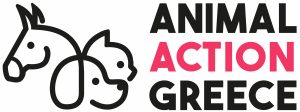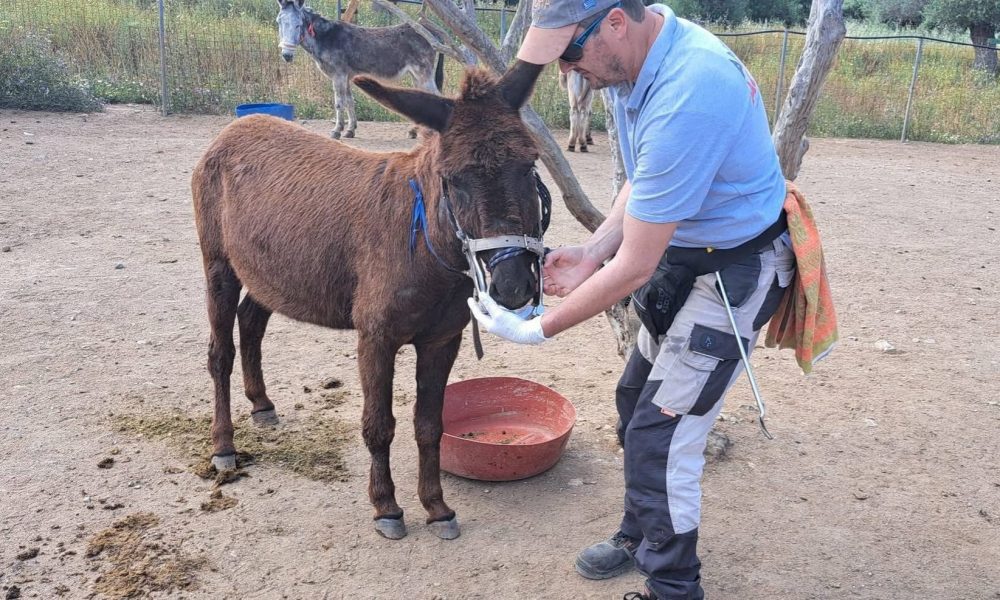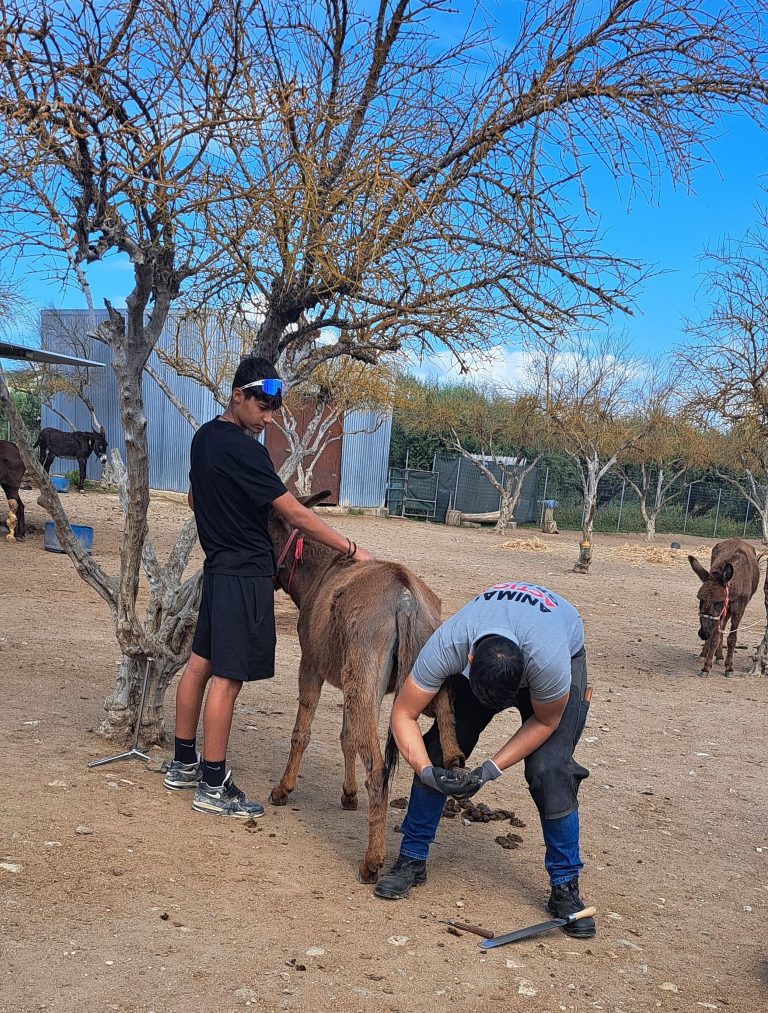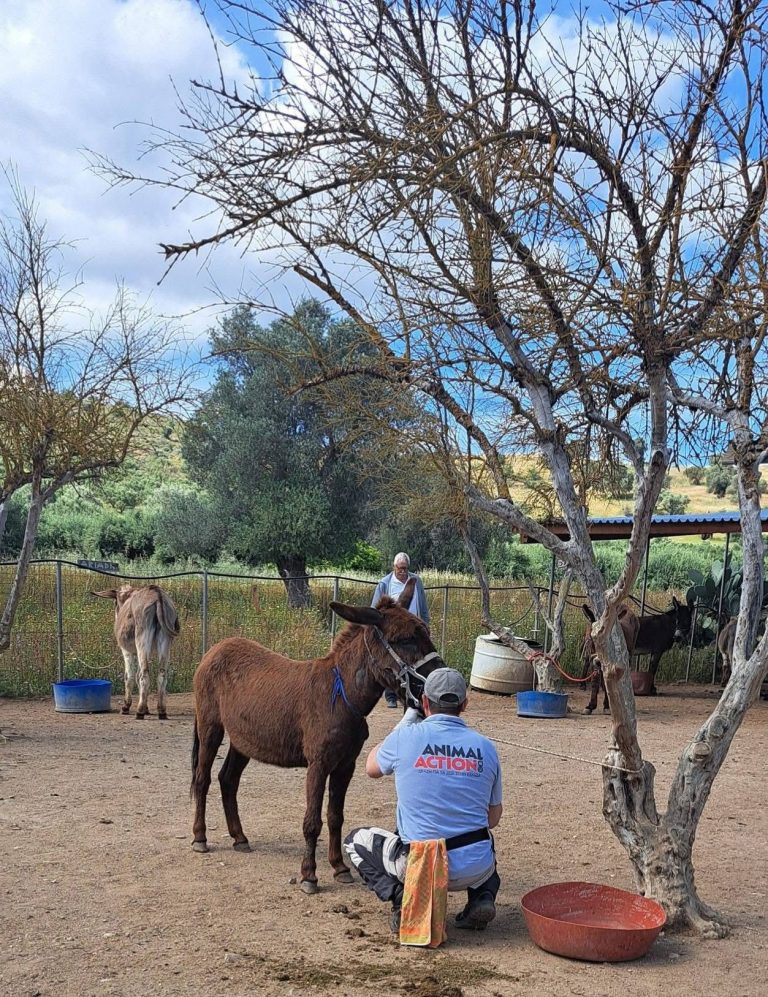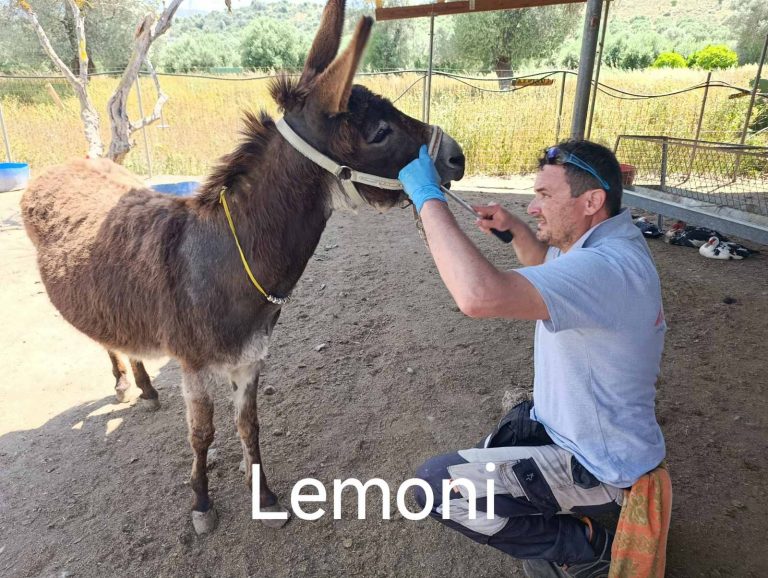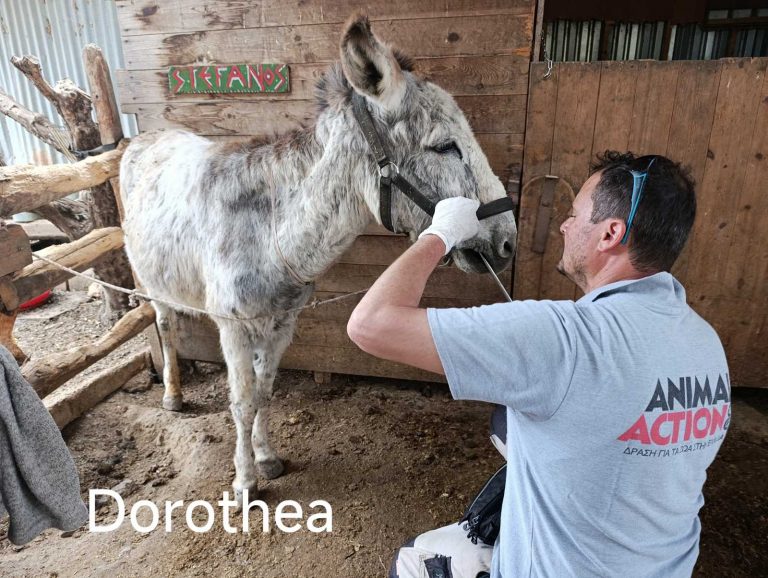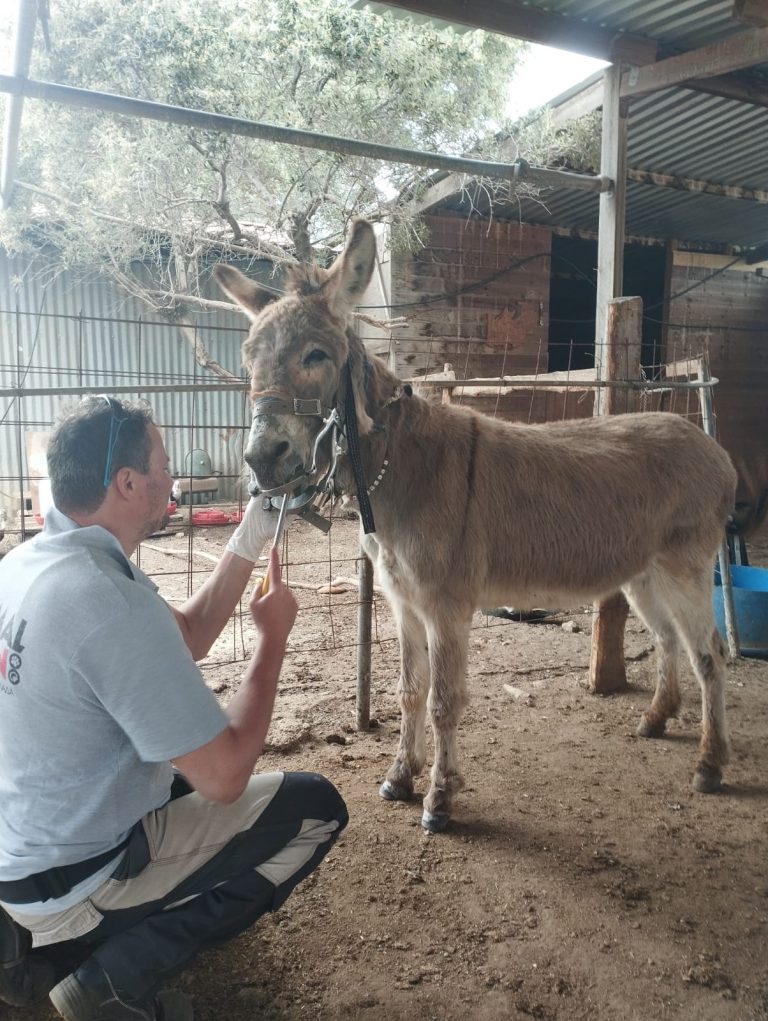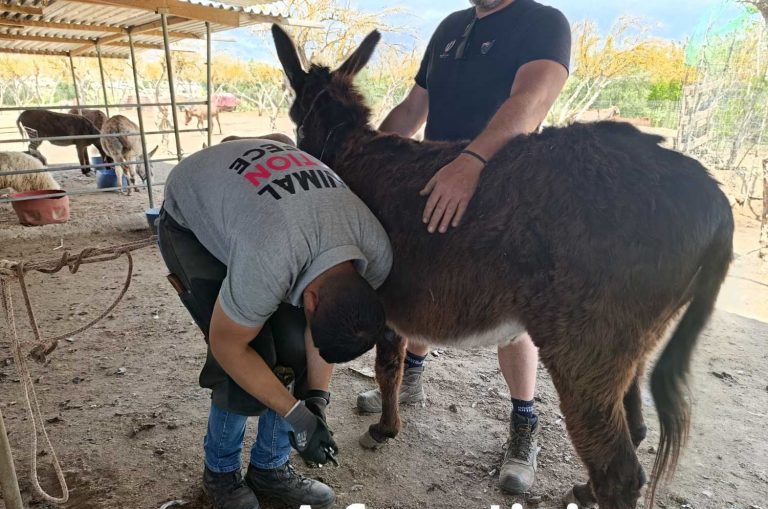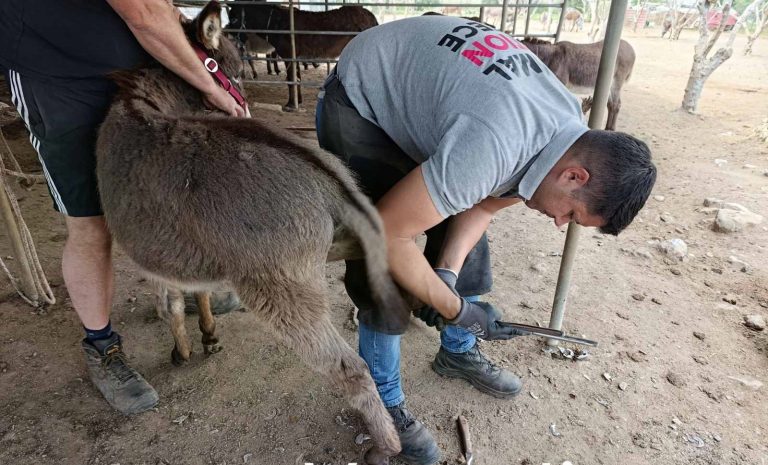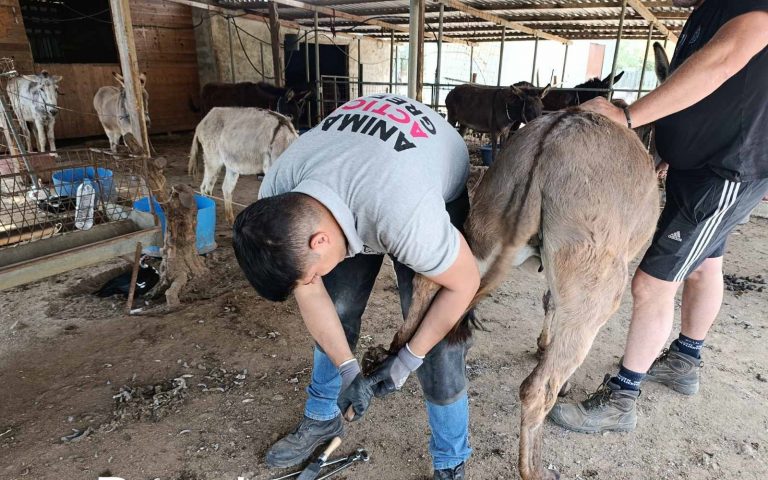The AAG Equine Care Programme has been supporting the Agia Marina Donkey Rescue for over a decade. The sanctuary provides a safe and caring retirement home for hardworking donkeys from Crete and other parts of Greece. The original founders, Barbara and Fanis, are now assisted by their children, Mihalis and Georgia, who continue the family’s dedication to animal welfare.
Vaios Bakratsas our farrier and Alkis Gkeskos our dental technician, visited Agia Marina Donkey Rescue on the 27th of April 2025 to provide care for the 32 resident donkeys.
While a few elderly donkeys passed away over the past year, several new arrivals have joined, including a three-member donkey family rescued from the easternmost island complex of Greece, Kastellorizo. This island’s water system depends on desalination, and rainfall is minimal, resulting in poor grass quality and limited grazing. Due to these harsh conditions, the donkeys were relocated to Agia Marina Donkey Rescue for a better life.
During the visit, Alkis examined all 32 donkeys and provided dental treatments to all but two: one very old gelding with only a few teeth remaining, and a young foal under two years of age. Although the elderly donkeys were once wary of any procedure including the dental ones due to their past experiences with their previous owners, they have grown increasingly accustomed to the annual treatments. Almost all now tolerate the checkups calmly, even appearing to enjoy the attention! Those that have received regular floating for several consecutive years were found to be in relatively good dental health.
Sharp enamel points were a common finding but – excluding the newcomers – they were not severe. Hooks and ramps were rare. Two donkeys required more advanced dental care, also involving electric equipment: Erotokritos, an elderly gelding with complex dental issues such as wave mouth and diastemmas and Alexandra, an elderly jenny with a shear mouth, meaning she was forced to chew only from one side. While the treatments provided immediate relief, both cases will require ongoing attention.
Vaios trimmed the hooves of all 32 donkeys. He noted a significant improvement in their hoof condition compared to previous years. No signs of lameness were observed, which is a sign of good overall care.
The visit was however essential to conduct thorough hoof trimming. Still, the farrier emphasized the importance of trimming the hooves of these animals at least two to three times per year to maintain optimal hoof health.
Over the years, the sanctuary has offered a home to many retired, rescued, and formerly abused donkeys—not just from Crete, but from various Greek islands in the Aegean. It’s a place where elderly donkeys can finally enjoy the love and care they were once denied.
We look forward to visiting Barbara and Fanis again next year and extend our heartfelt thanks for their hospitality and unwavering commitment to donkey welfare.
